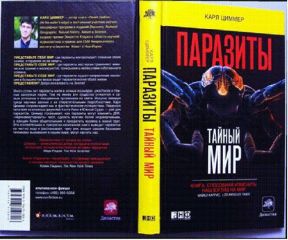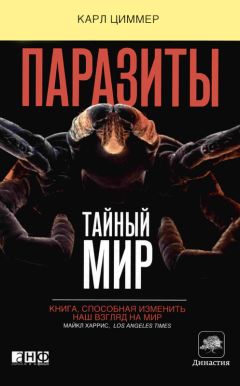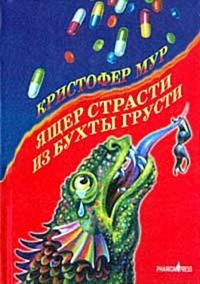Parasitology Today 7(12):329-334. Collis, S. A., and G. Walker. 1994. The morphology of the naupilar stages of Sacculina carcini (Crustacea: Cirripedia: Rhizocephala). Acta Zoologica 75(4):297-303.
Costanza, R., B. G. Norton, and B. D. Haskell, eds. 1992. Ecological health: New
goals for environmental management. Washington, D.C.: Island Press. Cox, F. E. G. 1994. The evolutionary expansion of the sporozoa. International
Journal of Parasitology 24:1301-1316. Crompton, D. W. T. 1999. How much human helminthiasis is there in the world?
Journal of Parasitology 85:397-403. Curtis, L. A. 1987. Vertical distribution of an estuarine snail altered by a parasite. Nature 235:1509-1511.
. 1990. Parasitism and the movement of intertidal gastropod individuals.
Biological Bulletin 179:105-112. Damian, R. 1987. The exploitation of host immune responses by parasites.
Journal of Parasitology 73(1): 1-13. Damon, C. 1997. The mask of the parasite. Ann Arbor: University of Michigan Press.
Darwin, C. 1857. The origin of species. London: John Murray. Dawkins, R. 1982. The extended phenotype: The gene as the unit of selection. New York: W. H. Freeman.
. 1990. Parasites, desiderata lists and the paradox of the organism.
Parasitology 100:S63-S73. Day, J. F., and J. D. Edman. 1983. Malaria renders mice susceptible to mosquito feeding when gametocytes are most infective. Journal of Parasitology 69:163-170.
DeBerardinis, R. J., J. L. Goodier, E. M. Ostertag, and H. H. Kazazian. 1998. Rapid amplification of a retrotransposon subfamily is evolving the mouse genome. Nature Genetics 20:288-290. DeMoraes, С. M., W. J. Lewis, P. W. Pare, H. T. Alborn, and J. H. Tumlinson. 1998. Herbivore-infested plants selectively attract parasitoids. Nature 393:570-573.
Desmond, A., and J. Moore. 1991. Darwin: The life of a tormented evolutionist.
New York: W. W. Norton. Desowitz, R. S. 1983. New Guinea tapeworms and Jewish grandmothers. New York: W. W. Norton.
Desowitz, R.S. 1991, The malaria capers. New York: W. W. Norton.
. 1997. Who gave Pinta to the Santa Maria? New York:
W. W. Norton.
Despommier, D. D. 1990. Trichinella spiralis: The worm that would be virus. Parasitology Today 6(6): 193-196.
Despres, L., D. Imbert-Establet, C. Combes, and F. Bonhomme. 1992. Molecular evidence linking hominid evolution to recent radiation of schistosomes (Platyhelminthes: Trematoda). Molecular Phylogenetics and Evolution 1:295-304.
DeVries, M. C., D. Rittschof, and R. B. Forward. 1989. Response by rhizocephalan- parasitized crabs to analogues of crab larval-release pheromones. Journal of Crustacean Biology 9:517-524.
Dobson, A. 1995. The ecology and epidemiology of rinderpest virus in Serengeti and Ngorongoro conservation area. In Serengeti II: Dynamics, management, and conservation of an ecosystem, edited by A. R. E. Sinclair and P. Arcese. Chicago: University of Chicago Press.
Doolittle, W. F. 2000. Uprooting the tree of life. Scientific American 282: 90-95.
Drummond, H. 1883. Natural law in the spiritual world. London: Hod-der and Stoughton.
Dunbar, R. 1996. Grooming, gossip, and the evolution of language. Cambridge, Massachusetts: Harvard University Press.
Durden, L. A., and J. E. Keirans. 1996. Host-parasite coextinction and the plight of tick conservation. American Entomologist (Sum-mer): 87-91.
Dushay, M. S., and N. E. Beckage. 1993. Dose-dependent separation of Cotesia congregata — associated polydnavirus effects on Manduca sexta larval development and immunity. Journal of Insect Physiology 39(12): 1029- 1040.
Dybdahl, M. F., and С. M. Lively. 1998. Host-parasite coevolution: Evidence for rare advantage and time-lagged selection in a natural population. Evolution 52(8): 1057-1066.
Eberhard, W. G. 1990. Evolution in bacterial plasmids and levels of selection. Quarterly Review of Biology 65:3-22.
Ebert, D. 1994. Virulence and local adaptation of a horizontally transmitted parasite. Science 265:1084-1088.
, and E. A. Herre. 1996. The evolution of parasitic diseases. Parasitology Today 12(3):96-101.
Evans, W. S., M. C. Hardy, R. Singh, G. E. Moodie, and J. J. Cote. 1992. Effects of the rat tapeworm Hymenolepis diminuta on the co-prophagic activity of its intermediate host, 7Yibolium confusum. Canadian Journal of Zoology 70:2311-2314.
Evans, W.S. A. Wong, М. Hardy, R. W. Currie, and D. Vanderwel. 1998. Evidence that the factor used by the tapeworm, Hymenolepis diminuta, to direct the foraging of its intermediate host, Tribolium confusum, is a volatile attractant. Journal of Parasitology 84: 1098-1101.
Ewald, P. W. 1994. Evolution of infectious disease. Oxford: Oxford University Press.
. 1995. The evolution of virulence: A unifying link between parasitology and ecology. Journal of Parasitology 81 (5):659-669.
Farley, J. 1972. The spontaneous generation controversy (1700-1860): The origin of parasitic worms. Journal of the History of Biology 5(1):95-125.
. 1977. The spontaneous generation controversy from Descartes to Oparin.
Baltimore: Johns Hopkins University Press.
Feener, D. H., and В. V. Brown. 1997. Diptera as parasitoids. Annual Review of Entomology 42:73-97.
Foley, M., and L. Tilley. 1995. Home improvements: Malaria and the red blood cell. Parasitology Today ll(ll):436-439.
. 1998. Protein trafficking in malaria-infected erythrocytes. International Journal of Parasitology 28:1671-1680.
Foster, W. D. 1965. A history of parasitology. Edinburgh: E. & S. Livingstone.
Fox, J. A, M. F. Dybdahl, J. Jokela, and С. M. Lively. 1996. Genetic structure of coexisting sexual and clonal subpopulations in a freshwater snail (Potamopyrgus antipodarum). Evolution 50:1541-1548.
Friedman, M. J., and W. Trager. 1981. The biochemistry of resistance to malaria. Scientific American (March): 156-164.
Fuhrman, J. A. 1999. Marine viruses and their biogeochemical and ecological effects. Nature 399:541-548.
Gardner, S. L., and M. L. Campbell. 1992. Parasites as probes for biodiversity. Journal of Parasitology 78(4):596-600.
Gemmill, A. W., M. E. Viney, and A. F. Read. 1997. Host immune status determines sexuality in a parasitic nematode. Evolution 51(2):393-401.
Gilbert, J., E. Mouchel-Vielh, and J. S. Deutsch. 1997. Engrailed duplication events during the evolution of barnacles. Journal of Molecular Evolution 44:585-594.
Ginsburg, H., S. A. Wray, and P. G. Bray. 1999. An integrated model of chloroquine action. Parasitology Today 15:357-360.
Glenner, H., and J. T. Hoeg. 1995. A new motile, multicellular stage involved in host invasion by parasitic barnacles (Rhizocephala). Nature 377:147- 150.
, A. Klysner, and B. Brodin Larsen. 1989. Cypris ultrastructure,
metamorphosis and sex in seven families of parasitic barnacles
(Crustacea: Cirripedia: Rhizocephala). Acta Zoologica 23: 229-242.
Glenner, H., J. T. Hoeg, J. J. O'Brien, T. D. Sherman, 2000. Invasive vermigon stage in the parasitic barnacles Loxothylacus texanus and L. panopaei (Sacculinidae): closing of the rhizocephalan life-cycle. Marine Biology, in press.
Good, M. F., D. С Kaslow, and L. H. Miller. 1998. Pathways and strategies for developing a malaria blood-stage vaccine. Annual Review of Immunology 16:57-87.
Grenfell, В. T. 1992. Parasitism and the dynamics of ungulate grazing systems. The American Naturalist 139:907-929.
Gross, P. 1993. Insect behavioral and morphological defenses against parasitoids. Annual Review of Entomology 38:251-273.
Grove, D. I. 1990. A history of human helminthology. London: CAB International.
Hamilton, W. D., and M. Zuk. 1982. Heritable true fitness and bright birds: A role for parasites? Science 218:384-387.
Harris, A. R. C., R. J. Russell, and A. D. Charters. 1984. A review of schistosomiasis in immigrants in Western Australia, demonstrating the unusual longevity of Schistosoma mansoni. Proceedings of the Royal Society of Tropical Medicine and Hygiene 78:385-388.
Hart, B. L. 1994. Behavioral defense against parasites: Interaction with parasite invasiveness. Parasitology 109:S139-S151.
. 1997. Behavioral defense. In Host-parasite evolution: General principles
and avian models, edited by D. H. Clayton and J. Moore. Oxford: Oxford University Press.
, and L. A. Hart. 1994. Fly switching by Asian elephants: Tool use to
control parasites. Animal Behavior 48:35-45.
, L. A. Hart, M. S. Mooring, and R. Olubayo. 1992. Biological basis
of grooming behavior in antelope: The body-size, vigilance and habitat principles. Animal Behavior 44:615-631.
Hartl, D. L., A. R. Lohe, and E. R. Lozovskaya. 1997. Modern thoughts on an ancient mariner: function, evolution, regulation. Annual Review of Genetics 31:337-358.
Hartnoll, R. G. 1967. The effects of sacculinid parasites on two Jamaican crabs. Journal of the Linnean Society (Zoology) 46:275-295.
Harwood, C. L., I. S. Young, D. L. Lee, and J. D. Altringham. 1996. The effect of Trichinella spiralis infection on the mechanical properties of the mammalian diaphragm. Parasitology 113:535-543.
Haseeb, M. A., N. R. Bergquist, L. K. Eveland, and R. C. Eppard. 1998. Vaccination against schistosomiasis: Progress, prospects, and novel approaches. Paper
read at Ninth International Congress of Parasitology, 1998, at Chiba, Japan.
Hashimoto, Т., L. B. Sanchez, T. Shirakura, M. Muller, and M. Hasegawa. 1998. Secondary absence of mitochondria in Giardia lamblia and Trichomonas vaginalis revealed by valyl-tRNA synthetase phylogeny. Proceedings of the National Academy of Sciences 95:6860-6865.
Heinlein, R. A. 1990. The puppetmasters. New York: Ballantine Books.
Helluy, S., and J. C. Holmes. 1989. Serotonin, octopamine, and the clinging behavior induced by the parasite Polymorphic paradoxus (Acanthocephala) in Gammarus lacustris (Crustacea). Canadian Journal of Zoology 68:1214- 1220.
Herre, E. A. 1993. Population structure and the evolution of virulence in nematode parasites of fig wasps. Science 259:1442-1445.
Herren, H. R., and P. Neuenschwander. 1991. Biological control of cassava pests in Africa. Annual Review of Entomology 36:257-283.
Hershokovitz, I., and G. Edelson. 1991. The first identified case of thalassemia? Human Evolution 6(l):49-54.
Hill, A. V. S„ S. N. R. Yates, С. E. M. Allsopp, S. Gupta, S. C. Gilbert, A. Lalvani, M. Aidoo, M. Davenport, and M. Plebanski. 1994. Human leukocyte antigens and natural selection by malaria. Proceedings of the Royal Society of London В 346:378-385.
Hitler, A. 1971. Mein Kampf Translated by Ralph Manheim. Boston: Houghton Mifflin Company.
Hoberg, E. P., S. L. Gardner, and R. A. Campbell. 1999a. Systematics of the Eucestoda: Advances toward a new phylogenetic paradigm, and observations on the early diversification of tapeworms and vertebrates. Systematic Parasitology 42:1-12.
A. Jones, and R, A. Bray. 1999b. Phylogenetic analysis among
the families of the Cyclophyllidea (Eucestoda) based on comparative morphology, with new hypotheses for co-evolution in vertebrates. Systematic Parasitology 42:51-73.
R. L. Rausch, K. Eom, and S. L. Gardner. 2000. A phylogenetic hypothesis for species of the genus Taenia (Cyclophyllidea: Taeniidae). Journal of Parasitology, in press.
Heeg, J. T. 1985a. Cypris settlement, kentrogon formation and host invasion in the parasitic barnacle Lernaeodiscus porcellanae (Muller) (Crustacea: Cirripedia: Rhizocephala). Acta Zoologica 66:1-45.
1985b. Male cypris settlement in Clistrosaccus paguri Lilljeborg
(Crustacea: Cirripedia: Rhizocephala). Journal of Experimental Marine Biology and Ecology 89:221-235.
Heeg, J. Т. 1987. Male cypris metamorphosis and a new male larval form, the trichogon, in the parasitic barnacle Sacculina carcini (Crustacea: Cirripida: Rhizocephala). Philosophical Transactions of the Royal Society of London В 317:47-63.
. 1992. Rhizocephala. In Microscopic anatomy of invertebrates. New
York: Wiley-Liss.
. 1995. The biology and life cycle of the Rhizocephala (Cirripedia). Journal of the Marine Biological Association of the United Kingdom 75:517-550.
Holldobler, В., and E. O. Wilson. 1990. The ants. Cambridge: Harvard University Press.
Hotez, P., J. Hawdon, and M. Cappello. 1995. Molecular mechanisms of invasion by Ancyclostoma hookworms. In Molecular approaches to parasitology, edited by J. C. Boothroyd and R. Komuniecki. New York: Wiley-Liss.
, and D. J. Prichard. 1995. Hookworm infection. Scientific American 272 (June) :68-74.
Howarth, F. G. 1991. Environmental impacts of classical biological control. Annual Review of Entomology 36:485-509.
Huffman, M. A. 1997. Current evidence for self-medication in primates: A multi- disciplinary perspective. Yearbook of Physical Anthropology 40:171-200.
Hurd, H. 1998. Parasite manipulation of insect reproduction: Who benefits? Parasitology 116 (Supplement): S13-21.
Hurst, G. D. D., F. M. Jiggins, and J. H. Graf von der Schulenbeurg. 1999. Male- killing Wolbachia in two species of insect. Proceedings of the Royal Society of London В 266:735-740.
Hurst, L. D. 1993. The incidences, mechanisms and evolution of cytoplasmic sex ratio distorters. Biological Reviews of the Cambridge Philosophical Society 68:121-193.
James, A. A., and P. A. Rossignol. 1991. Mosquito salivary glands: Parasitological and molecular aspects. Parasitology Today 7: 267-271.
Janeway, C. A., and P. Travers. 1994. Immunobiology: The immune system in health and disease. London: Current Biology, Ltd.
Jarolim, P., J. Palek, D. Amato, K. Hassan, P. Sapak, G. T. Nurse, H. L. Rubin, S. Zhai, К. E. Sahr, and S. Liu. 1991. Deletion in erythrocyte band 3 gene in malaria-resistant Southeast Asian ovalocytosis. Proceedings of the National Academy of Sciences 88:11022-11026.
Karanja, D. M. S., D. G. Colley, B. L. Nahlen, J. H. Ouma, and W. E. Secor. 1997. Studies of schistosomiasis in western Kenya: I. Evidence for immune-facilitated excretion of schistosome eggs from patients with
Schistosoma mansoni and human immunodeficiency virus coinfections. American Journal of Tropical Medicine and Hygiene 56(5):515-521.
Karban, R., and G. English-Loeb. 1997. Tachinid parasitoids affect host plant choice by caterpillars to increase caterpillar survival. Ecology 78:603- 611.
Katz, L. A. 1998. Changing perspectives on the origin of eukaryotes. 7Yends in Ecology and Evolution 13:493-497.
Kavaliers, M., and D. Colwell. 1995a. Discrimination by female mice between the odors of parasitized and non-parasitized males. Proceedings of the Royal Society of London В 261:31-35.
. 1995b. Odors of parasitized males induce aversive responses in female
mice. Animal Behavior 50:1161-1169.
Kawecki, T. J. 1998. Red Queen meets Santa Rosalia: Arms races and the evolution of host specification in organisms with parasitic lifestyles. American Naturalist 152:635-651.
Kazazian, H. H., and J. V. Moran. 1998. The impact of LI retrotransposons on the human genome. Nature Genetics 19:19-24.





